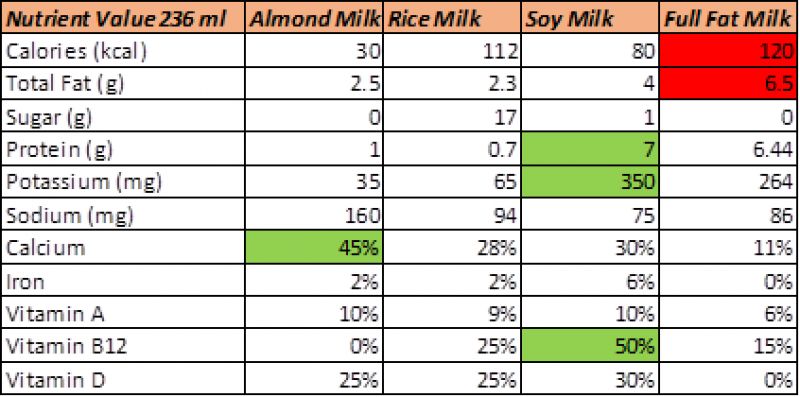World Milk Day: Animal vs plant milk, which is the healthier choice?
Typically, milk is the primary source of nutrition for infant mammals before they are able to digest other types of food.
Established by the Food and Agriculture Organization (FAO) of the United Nations to recognise the importance of milk as a global food – World Milk Day is celebrated on the 1st of June every year.
On the occasion of its 18th anniversary, let’s evaluate the importance of milk- the product which runs the 126 trillion-rupee dairy industry.
Launched in 1970, ‘Operation Flood’ transformed the dairy industry from a petty business to a co-operative movement.
Making India, within a span of three decades, the largest producer of milk, with an output of over 165.4 million tons in 2016-17.
Owing to this, there are over 299.6 million animals used in the Indian dairy industry, as per the 2012 livestock census.
Typically, milk is the primary source of nutrition for infant mammals before they are able to digest other types of food. After giving birth- all mothers produce milk for the initial development of their offspring.
However, almost all Indians, adults as well as children, consume dairy products on a regular basis as milk has been marketed as healthy and essential for adult growth and sustenance.
Most believe milk consumption is a necessity, even after weaning off of mothers’ milk.
Surprisingly though, animal milk is not always the health drink it is played up to be. Animals are injected with oxytocin, an illegal drug, to increase milk letdown. Increased milk production can cause infection in the udder (mastitis) of animals, resulting in pus and bacteria in the milk.
Reared in conditions of extreme confinement, animals are pre-emptively kept on antibiotics to avoid illness.
Still, every glass of milk contains approximately 1-7 drops of pus; making milk a cocktail of pus, hormones, antibiotics, pesticides and urea. Children are particularly vulnerable to these antibiotics which obstruct the development of the immune system and cause antibiotic resistance.
Growth hormones in milk can also lead to diabetes and obesity. Many studies, such as the one by American Journal of Public Health, have shown that higher intake of dairy products is not associated with decreased risk of fracture.
In fact, Amy Lanou Ph.D., nutrition director for PCRM states that the countries with highest milk consumption have highest rates of osteoporosis.
Growing awareness regarding the ill-effects and inadequacies of milk, increased lactose intolerance and a general trend towards compassion has caused a new industry to emerge – that of plant-based milks. India too, has seen a fair share of growth in this market.
From large FMCG companies such as Godrej, Hershey, Life Health Foods, Danone, Europaea to homegrown labels Chetrans, GoodMylk, Cowvathi- the Indian plant-milk industry is developing fast!
The legacy of the traditional dairy industry however, still lives on – with many believing that calcium, protein and vitamin D are only available in animal milk and its products.
In reality, plant-based milks have more or equal calcium, protein, sodium and potassium compared to cow’s milk; minus the cholesterol, allergies, hormones and antibiotics.
 Nutrient values of different kinds of milk
Nutrient values of different kinds of milk
Although, vitamin B12 might be absent from home-made plant milk and is a cause of concern for many considering a shift to plant-based alternatives, most packaged soy milk is fortified with vitamin B12.
But why would someone spend 10 minutes milking almonds? Other than the obvious reason- being cruelty-free, homemade plant milk is nutritious, fresh and preservative free.
A plant-based diet is also credited with reducing the risk of cardiovascular disease, PCOS, hypothyroid, osteoporosis, diabetes, high cholesterol and cancer. According to a trend report by Innova Market Insights, the plant-based milk industry is set to reach 16.3 billion in 2018, up from 7.4 billion in 2010.
The rapid growth of the industry shows that now, more than ever, consumers are choosing dairy-free alternatives such as almond, coconut and other milks.
Today the markets are flooded with healthy and cruelty free milk options. And while tier 1 city residents would find it easy to find these options at a local superstore, they’re unbelievably simple to make at home too!
Almond Milk: Soak 1 and a half cups (192g) of almonds in 4 cups (1 litre) of filtered water overnight. Blend the almonds with the water and add dates (optional) if you like your milk to be sweet. Strain to remove the almond granules. It can be stored in the refrigerator safely for 3-4 days.
Creamy Rice Milk: Put 85g of hot rice (preferably brown rice), 43g of raw cashews, 700ml of hot water, ½ tsp of salt and vanilla (optional) in a blender and blend for 2 minutes. Strain the residue in a cheese cloth or a fine sieve to remove the granules. It can be kept for at least 48 hours.
Soy Milk: To make 1 liter of soy milk put 140 gms split soybeans in a pan and pour 3 liters boiling water over them. Let it cool and wait 6 to 12 hours. Drain the beans, add 1 liter cold water and mix it in a blender for 3 minutes. Remove the soymilk from the solids by squeezing the mixture through a cheesecloth. Bring the soymilk to boiling point and continue to boil for 10 minutes and cool down to store for up to 3 days in the refrigerator.
This World Milk Day, let’s make an effort to understand its essence and not get lost in the commercialisation of its celebration. Let’s widen the horizon of our definition of milks and evolve towards using healthy plant-based milks.
The article has been authored by Varda Mehrotra. The author is the Director of Federation of Indian Animal Protection Organisations (FIAPO). She has extensive experience of working for animal rights in India and Scotland, setting up the largest collective for grassroots activism and helping others kick-start movements in their own local communities.


















